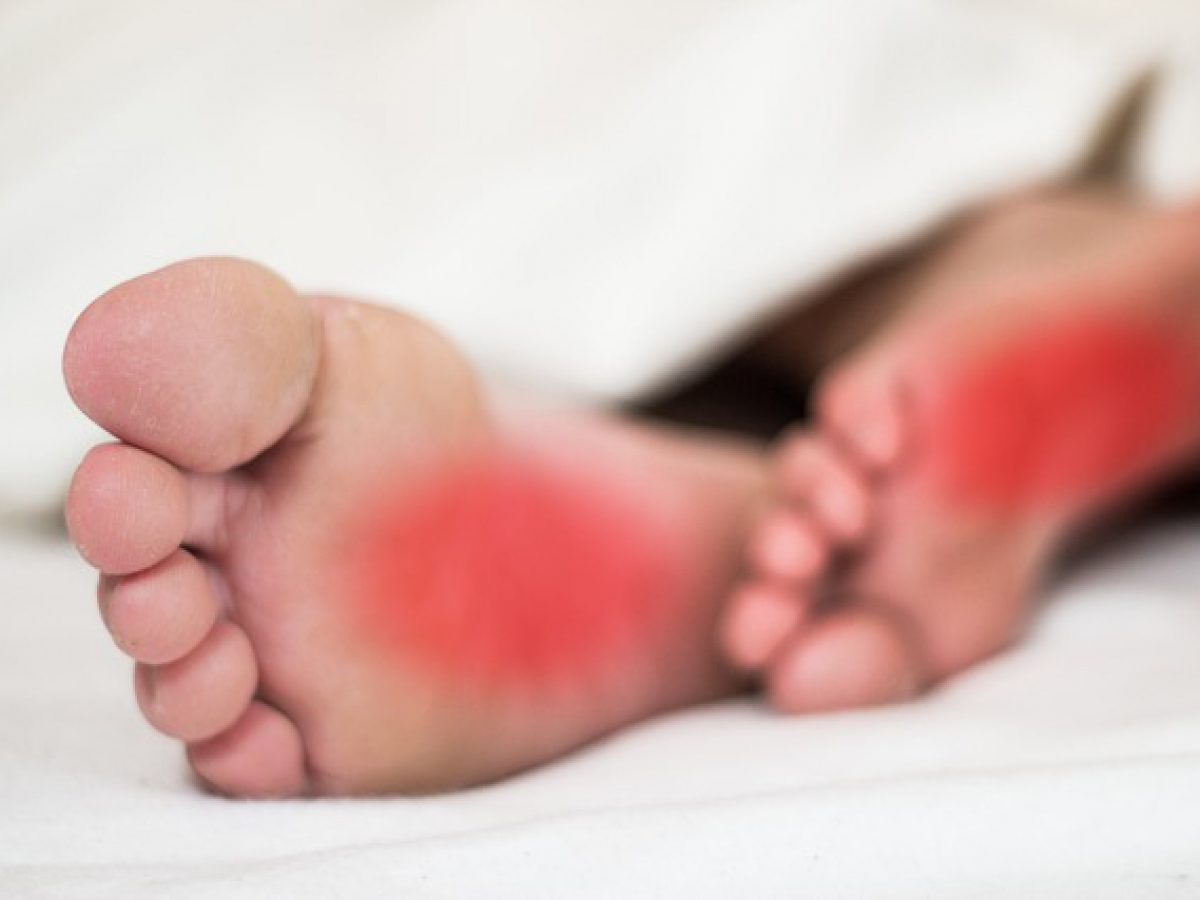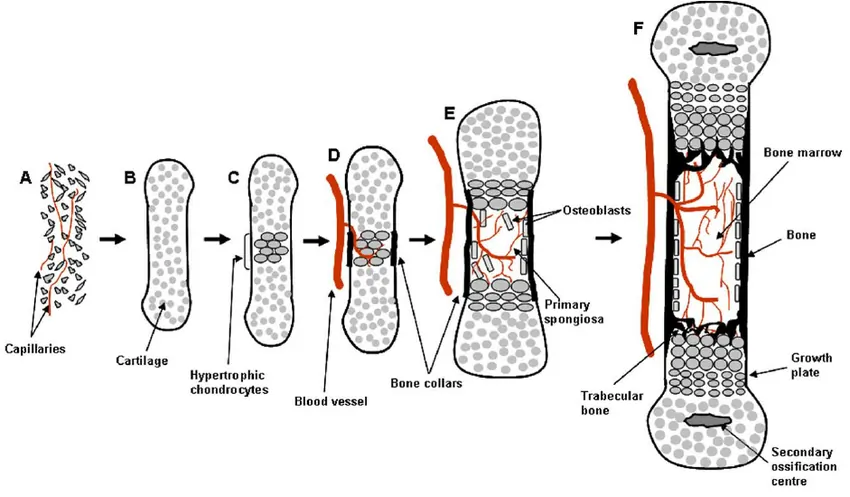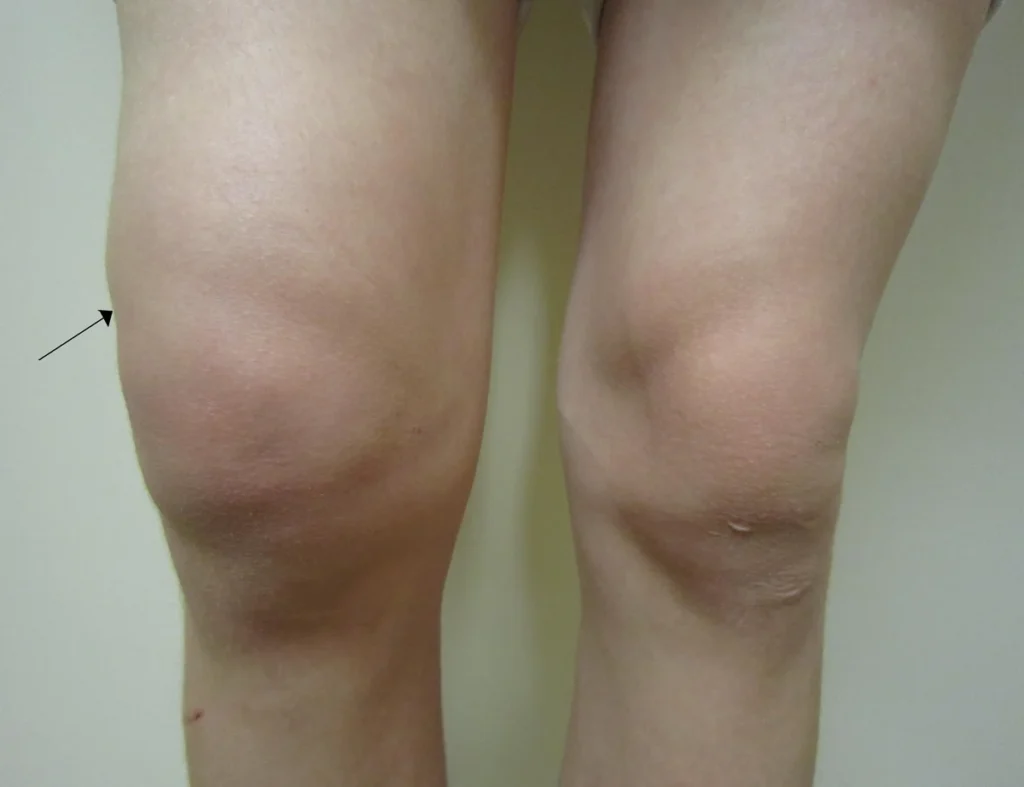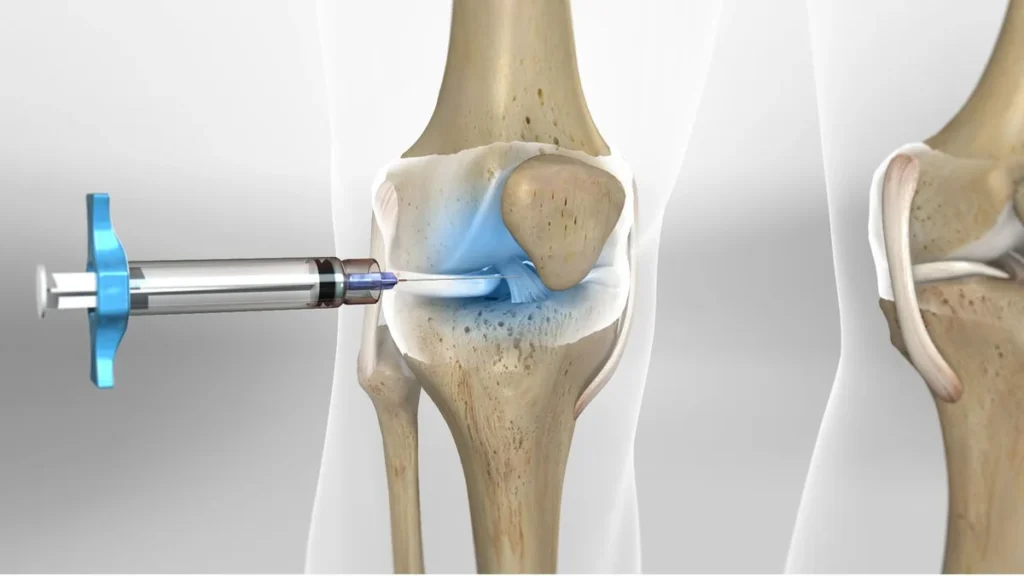In this article, we will talk about Heat or Burning Sensation in the Feet. The feeling of heat or burning in the soles of the feet, especially at night, can be the result of several diseases. This sensation sometimes includes feelings like itching, numbness, pain like shooting, or feet falling asleep. In this article, we will examine the causes, diagnosis, and treatment of this problem.

Causes of Heat or Burning Sensation in the Feet
Multiple causes can lead to a sensation of heat in the soles of the feet, including neuropathy, infections, and vitamin deficiency.
- Vitamin Deficiency
- For proper nerve function, specific vitamins and minerals are needed. Deficiencies in vitamin B12 and folate can lead to neuropathy and consequently, a burning sensation in the feet. Reasons for this deficiency can include:
- Inadequate diet
- Vitamin absorption problems due to digestive issues
- Certain medications
- Pregnancy
- Cancer
- Anemia
- For proper nerve function, specific vitamins and minerals are needed. Deficiencies in vitamin B12 and folate can lead to neuropathy and consequently, a burning sensation in the feet. Reasons for this deficiency can include:
- Nerve Damage
- Nerve damage or neuropathy, caused by a malfunction in nerves and their connections to other parts of the body, can have several causes, including:
- Physical injury
- Diabetes
- Circulatory problems
- Autoimmune diseases
- Hormonal abnormalities
- Kidney and liver problems
- Vitamin B12 deficiency
- Certain cancers and chemotherapy drugs
- Infections
- Nerve damage or neuropathy, caused by a malfunction in nerves and their connections to other parts of the body, can have several causes, including:
- Fungal Infection
- An athlete’s foot may lead to a fungal infection that grows in warm, moist areas of the skin, causing redness, itching, and pain.
- Diabetic Neuropathy
- Diabetes can lead to neuropathy and, as a result, a sensation of heat or burning in the feet. Poor blood sugar control can lead to nerve damage causing pain, warmth, or even numbness in the feet. Neuropathy can also make it difficult to diagnose and treat foot wounds and infections.
- Kidney Disease
- The kidneys are responsible for filtering toxins from the blood and maintaining electrolyte balance. In chronic kidney disease, the kidneys do not function properly, leading to problems with electrolytes in the blood, which can cause nerve damage.
- Hypothyroidism
- When the thyroid gland cannot produce enough thyroid hormone, hypothyroidism occurs. A reduction in thyroid hormone can cause a sensation of heat in the feet or itching in the soles, weight gain, thinning hair, and dry skin.
- Hormonal Changes
- Hormonal fluctuations can damage body functions and cause inflammation in tissues that put pressure on nerves. This pressure can cause nerve damage, heat in the soles of the feet, and numbness.
- Pregnancy
- During pregnancy, hormonal changes increase, which can lead to changes in body temperature and swelling and warmth in the feet. These changes are usually temporary and resolve with the return of hormones to normal levels.
- Menopause
- Women in menopause may experience a sensation of heat in the soles of the feet and hot flashes, due to hormonal changes. This condition usually improves after a few years.
- Guillain-Barre Syndrome
- Guillain-Barre Syndrome, caused by the immune system attacking the nerves, is a rare disease. It causes weakness, tingling, and burning that starts in the lower body and progresses to other parts. This is an emergency condition requiring immediate treatment to prevent diaphragm paralysis and breathing problems.
- Erythromelalgia
- Erythromelalgia is a rare disease that causes those affected to feel heat in the soles of the feet, warmth, redness, and inflammation, especially in the hands and feet. In many cases, the exact cause of this disease is not clear, but sometimes genetic factors are involved.
- Lifestyle-Related Factors
- Smoking: Smoking causes narrowing of blood vessels and reduced blood flow, which can lead to nerve damage.
- Excessive Alcohol Use: Alcohol reduces the level of vitamins in the body, especially vitamins B6, B12, and folic acid. Deficiency in these vitamins can lead to nerve pain.
- Wearing Inappropriate Shoes: Inappropriate shoes, especially when standing or walking for long periods, can cause pain and burning in the feet.
- Chronic Stress: Stress negatively affects blood flow and nerve nutrition. Reduced blood flow to nerves can damage them.
- Certain Medications: Some medications, including chemotherapy drugs and drugs used to control blood pressure or seizures, can cause neuropathy. Radiation therapy may also have similar effects.

To make an appointment or get an online consultation with Dr. Nader Motallebi Zadeh, Limb lengthening surgeon, proceed here.
Additional Information
If you are facing the above-mentioned problems or feel that your lifestyle might be harming your nerve health, it is recommended to consult with your doctor. A thorough assessment and necessary lifestyle changes can help prevent long-term damage to nerve health.
Diagnosing the Cause of Burning Sensation in the Feet
To identify the reason for the burning sensation in the feet, one should first consult a specialist doctor.
- Physical Examination
- The doctor will gather initial information by asking questions about your medical history, medications you are taking, vitamins and supplements, as well as your family health history. The doctor will also want to know when your symptoms started and if there is any specific factor that exacerbates or reduces them. During the physical examination, the doctor will check your vital signs and all body systems and may perform neurological tests.
- Blood Tests
- Blood tests are conducted to identify vitamin deficiencies, diabetes, kidney or liver problems, infections, metabolic disorders, or signs of improper immune system function.
- Neurological Function Tests
- Nerve Conduction Velocity (NCV): This test is done using a special device to stimulate nerves and measure the speed and strength of the nerve response.
- Electromyography (EMG): In this test, small needles are inserted into muscles to evaluate their electrical activity in both contracted and relaxed states.
- Nerve Biopsy: This test is performed when a more detailed examination of nerve tissue is needed, although many doctors avoid this method to prevent nerve damage.
- Imaging
- MRI: This technique is used to investigate the possibility of pressure on the spinal column and diagnose related problems.
- Computed Tomography (CT): This technique is used to identify issues such as spinal canal stenosis, herniated discs, tumors, or bone problems that could damage nerves.
Important Note
If you are experiencing a burning sensation in the soles of your feet, it is advised to promptly visit a doctor for necessary tests and examinations to diagnose the cause of your problem and apply appropriate treatment.
Treatment of Burning Sensation in the Feet
The treatment method for a burning sensation in the feet depends on the type of nerve damage and its cause. If the nerve cells are still alive, addressing the primary cause can help improve symptoms.
Home Care
- Soak your feet in cool water for 15 minutes before bedtime.
- Ensure that your shoes fit your feet properly and that your socks allow your feet to breathe.
- Wear a different pair of shoes each day and air them out after use.
Healthy Habits
- Maintain your weight within a healthy range.
- Avoid toxic substances.
- Have a balanced diet.
- Address any vitamin deficiencies.
- Quit smoking.
- Exercise regularly.
- Control your blood sugar levels.
Medical Care
- If the burning sensation in the feet is due to inflammatory or autoimmune diseases, medications that control the immune system may be helpful.
- Fungal infections can be treated with antifungal creams, keeping the feet dry and clean, and oral medications if necessary.
- In cases of mechanical or structural issues, assistive devices such as braces, foot splints, and orthopedic shoes can be used.
- Medications like gabapentin and pregabalin are commonly prescribed for neuropathy treatment. Blood sugar control is also crucial to prevent neuropathy progression.
- Creams containing lidocaine or capsaicin can be effective in reducing pain and discomfort.
Remember, consulting with a doctor and following their advice is critically important for effective and safe treatment.

To make an appointment or get an online consultation with Dr. Nader Motallebi Zadeh, Limb lengthening surgeon, proceed here.



